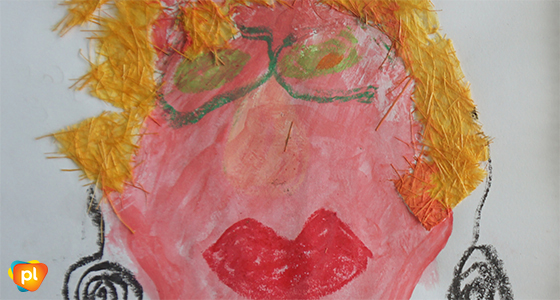
An estimated 3,370 women are living with HIV in Australia. This invisible 10% of the country’s HIV population face HIV stigma and isolation as well as barriers to appropriate health and social care. Since March 2020, the Kirby Institute, in close partnership with Positive Life NSW and HIV community organisations across Australia, have been developing a qualitative arts based research study called the Positively Women project, using art and meditation to express what it means to be a woman living with HIV in Australia.
In September 2021, the Positively Women online exhibition was launched through an online exhibition space which shares the results of this national collaboration of women living with HIV, researchers, clinicians, artists, and members of community organisations.
“The Positively Women research project was developed to make women’s lived experiences of HIV more visible,” said Jane Costello, CEO of Positive Life NSW and investigator on the research team. “It was critically important that this project was co-designed and co-produced by women for women to document the impacts of creative methods in changing stigmatising and discriminatory attitudes in the general public.”
Chief Investigator and senior research fellow at the Kirby Institute at UNSW, Dr Allison Carter says, “The team is exploring the impact of viewing the women’s art and stories on people’s knowledge and attitudes to HIV, and examining how art can influence health and bring about change, both for women and for those who view their artwork.”
The project manager Dr Patricia Morgan described benefits of the Meditative Process Art (MPA) method created for and used in the workshop, “We found that this application of the MPA method led to increased peer support, enhanced agency and provided a means to release suppressed negative emotion and trauma.”
The connection between art, healing, and public health has a strong body of evidence.1 Two decades of the effectiveness of art based and art therapy, demonstrates the research field has extended its scope and is growing.2
The art in the Positively Women study was created by ten Australian women living with HIV, through a four-week virtual workshop in late 2020. This involved a range of activities such as drawing, painting, meditation, gentle movement, and storytelling. The workshop became a safe space for the participants to share their stories of life with HIV, engage in discussion and art making. Many women spoke of late diagnosis, the trauma of diagnosis, and the impacts this had on their parenting style. Some spoke of feeling the need to live a double life, of loneliness, problems with medication, reproductive coercion and agency, realisation of being more than HIV, and everyone, from women diagnosed in the 1980s to a woman diagnosed in 2016, spoke of their experiences of HIV stigma and marginalisation.
Some examples of the realisations and changes the participants experienced include Diane who said “…I am stronger than I think…I am going to have a voice.” An older woman living with HIV, Ange wrote: “…Wise I Am; Awesome I Am; I Am Grandmother, Human, Whole.”
Katherine share her insight: “…I am more than a walking virus; I am a daughter, a mother, and a nanny; I am me…and I am grateful for HIV treatments and still being here in 2020.”
These stories about the women’s empowering and transformative journey have informed the project’s second stage which includes a tour of the online exhibition and group discussions with a range of audiences, including with women living with HIV, healthcare providers, policy makers and the general public.
To view the online exhibition website visit www.positivelywomenproject.com.au
– Published in Talkabout #199 October 2021
1. The Connection Between Art, Healing, and Public Health: A Review of Current Literature. Am J Public Health. 2010 February; 100(2): 254–263. doi: 10.2105/AJPH.2008.156497
2. Effectiveness of Art Therapy With Adult Clients in 2018—What Progress Has Been Made? Front Psychol. 2018; 9: 1531. doi: 10.3389/fpsyg.2018.01531






